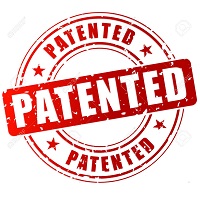Investigación
Publicación (Tesis doctorales)
Agile Construction and Evolution of Product-Line Architectures
-
Díaz Fernández, Jessica
- Resumen:
- Software Product Line Engineering (SPLE) has proved to have significant advantages in family-based software development, but also implies the up¬front design of a product-line architecture (PLA) from which individual product applications can be engineered. The big upfront design associated with PLAs is in conflict with the current need of "being open to change". However, the turbulence of the current business climate makes change inevitable in order to stay competitive, and requires PLAs to be open to change even late in the development. The trend of "being open to change" is manifested in the Agile Software Development (ASD) paradigm, but it is spreading to the domain of SPLE. To reduce the big upfront design of PLAs as currently practiced in SPLE, new paradigms are being created, one being Agile Product Line Engineering (APLE). APLE aims to make the development of product-lines more flexible and adaptable to changes as promoted in ASD. To put APLE into practice it is necessary to make mechanisms available to assist and guide the agile construction and evolution of PLAs while complying with the "be open to change" agile principle. This thesis defines a process for "the agile construction and evolution of product-line architectures", which we refer to as Agile Product-Line Archi-tecting (APLA). The APLA process provides agile architects with a set of models for describing, documenting and tracing PLAs, as well as an algorithm to analyze change impact. Both the models and the change impact analysis offer the following capabilities: Flexibility & adaptability at the time of defining software architectures, enabling change during the incremental and iterative design of PLAs (anticipated or planned changes) and their evolution (unanticipated or unforeseen changes). Assistance in checking architectural integrity through change impact analysis in terms of architectural concerns, such as dependencies on earlier design decisions, rationale, constraints, and risks, etc.Guidance in the change decision-making process through change im¬pact analysis in terms of architectural components and connections. Therefore, APLA provides the mechanisms required to construct and evolve PLAs that can easily be refined iteration after iteration during the APLE development process. These mechanisms are provided in a modeling frame¬work called FPLA. The contributions of this thesis have been validated through the conduction of a project regarding a metering management system in electrical power networks. This case study took place in an i-smart software factory and was in collaboration with the Technical University of Madrid and Indra Software Labs.
- Áreas de investigación:
- Tecnologías Software y Servicios
- Año:
- 2012
- Tipo de publicación:
- Tesis doctorales
- Tipo de publicación:
- PhD Thesis
- Tecnologías Software y Servicios
Grupos de Investigación
Áreas Estratégicas
Contacto
Edificio La Arboleda. Campus Sur UPM.
Calle Alan Turing 3
28031 Madrid
Email: web.citsem@upm.es
Tfno: +34 9106 78762
Website: www.citsem.upm.es








